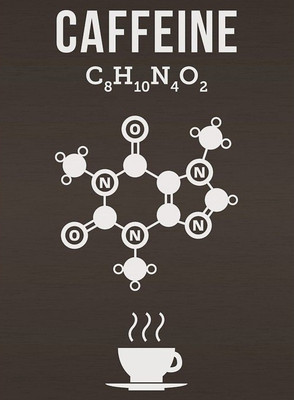Caffeine Breakdown
Jeremy Denny on 21st Feb 2025
Caffeine is a central nervous system stimulate found naturally in things like coffee, tea, and cocoa beans. Caffeine is the most well-known chemical compound found in coffee. Many people drink coffee for its caffeine content as their sole motivation. Coffee is packed full of healthy nutrients, minerals, polyphenols and much more. Please review our other blogs for more information on those, so here is quick deep dive into caffeine.
Caffeine levels in coffee can vary depending on several factors, such as the type of coffee bean, the brewing method, and the serving size. Usually about 1.2% to 1.5% caffeine by weight for Arabica and double that for Robusta. Here is a rough breakdown of caffeine content in different types of coffee:
1. Espresso (1 oz/30 ml): 63 mg of caffeine
2. Brewed Coffee (8 oz/240 ml): 95 mg of caffeine
3. Instant Coffee (8 oz/240 ml): 62 mg of caffeine
4. Decaf Coffee (8 oz/240 ml): 2 mg of caffeine, depending on processing type.
Here are a few of the potential positive effects of caffeine in coffee:
1. Enhanced Mental Alertness: Caffeine stimulates the central nervous system, leading to increased alertness, concentration, and cognitive performance.
2. Improved Physical Performance: Caffeine can enhance physical endurance and strength by mobilizing fatty acids from the fat tissues and making them available for use as energy.
3. Boosted Metabolism: Caffeine has been shown to increase metabolic rate, which can help with weight management.
4. Antioxidant Properties: Coffee and tea, which contain caffeine, are rich in antioxidants that can help fight free radicals and reduce inflammation.
5. Reduced Risk of Certain Diseases: Moderate caffeine consumption has been associated with a lower risk of developing certain diseases, such as Parkinson's disease, Alzheimer's disease, and type 2 diabetes.
6. Mood Improvement: Caffeine can have a positive impact on mood by increasing the levels of certain neurotransmitters, such as dopamine and serotonin, which are associated with feelings of happiness and well-being.
7. May improve athletic performance.
8. May reduce the risk of Parkinson's disease and Alzheimer's disease.
9. May protect against certain types of cancer.
Now for the bad. Excessive consumption, poor sourcing and quality control can lead to several health issues. Here are some potential side effects of over consumption or low-quality caffeine in coffee:
1. Anxiety: High doses of caffeine can increase alertness, which may lead to anxiety and nervousness.
2. Digestive Issues: Large amounts of caffeine can cause digestive problems, such as loose stools or diarrhea.
3. Increased Heart Rate: Consuming too much caffeine can lead to an increased heart rate and palpitations.
4. High Blood Pressure: Caffeine can cause a temporary increase in blood pressure, which may be problematic for individuals with hypertension.
5. Addiction: Regular consumption of caffeine can lead to dependence, and sudden withdrawal can cause symptoms like headaches, fatigue, and irritability.
It is important to consume caffeine in moderation to avoid these potential health issues. The FDA recommends that most adults can safely consume up to 400 milligrams of caffeine per day, which is roughly equivalent to four 8-ounce cups of brewed coffee. Everyone’s tolerance is different. We believe that sourcing and processing coffee is just as important as the quantity you consume as far as health goes.
A few other general notes on caffeine in coffee:
· Remember caffeine is not the most important, healthiest or highest concentrated chemical in coffee. Although it is the most sought after.
· Lighter roast coffee has a higher level of caffeine than darker roast coffee.
· Cold brew has the highest concentration of caffeine, due to decoction and no heat degradation.
· Sourcing clean coffee that has healthy composition will allow for easier digestion of caffeine.
· Adding things like sugar to coffee will increase the chances of caffeine issues.
· Adding whole milk can help increase the fat of that coffee and help with digestion of caffeine.
· Most “caffeine free or decaf coffee” is chemically processed.
· Growing region, weather, processing, storage, roast profile, age and brewing method can all effect caffeine quality and levels in coffee.
· Acts as a diuretic
· Chemical Formula: C8H10N4O2

